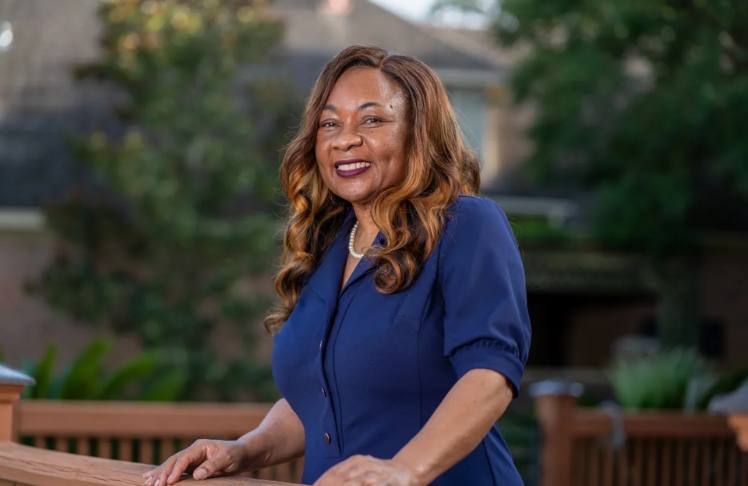
From stopping Americans from being exposed to dirty air and poisoned water to putting in place policies to reduce hazardous waste in our communities, environmental and climate justice activist Catherine Coleman Flowers has her work cut out for her.
As the vice co-chair of the White House Environmental Justice Advisory Council, Coleman Flowers spends her days talking about how environmental pollution and climate change affect Americans — and figuring out what to do about it.
According to its website, the council is charged with advising “on how to increase the Federal Government’s efforts to address current and historic environmental injustice through strengthening environmental justice monitoring and enforcement.”
To that end, Coleman Flowers and her colleagues regularly discuss climate justice efforts with President Joe Biden and Vice President Kamala Harris, and she attends White House Environmental Justice Advisory Council meetings.
“My role is to bring my perspective,” she says.
Coleman Flowers is well aware that Black communities in her home state of Alabama — just like Black communities nationwide — have been hard-hit by climate-related disasters such as extreme temperatures, hurricanes, and wildfires.
But she says people living in poverty — from all racial and ethnic backgrounds — are “dealing with the same issues” that Black folk are. That means working towards climate justice is about improving the lives of all Americans.
“Climate justice is every community having the opportunity to build resilience and sustainability,” she says.
Read on to find out why Coleman Flowers says all hands need to be on deck to stop climate change.
Word In Black: What does climate justice mean to you, and how are you fighting for it every day?
Catherine Coleman Flowers: To me, climate justice is every community having the opportunity to build resilience and sustainability. It also means that communities that are at the forefront of climate change will be given the opportunity to survive.
We get freezing temperatures that are happening in places that have never happened before — or whether or not you have air conditioning in the summertime, where it gets so hot that, without it, you won’t survive.
Then we look at Alaska, where the permafrost is melting, and people are losing their homes — they’re actually crashing into the ocean. It means different things to different people. If you’re in Puerto Rico, you’re under the gun when it comes to hurricanes.
WIB: What do you think is the most pressing environmental issue right now?
CCF: Whether or not we’re going to survive. I think that’s the most pressing environmental issue as we deal with climate change. The extreme weather events it is causing and the chain reaction around the world.
WIB: Do you think there are climate crises across the world that are being ignored?
CCF: I don’t think they’re being ignored. We have the opportunity to get the information if we want to get the information. The question is whether or not we’re looking for it. There is a climate crisis around the world. Some people are suffering more than others.
There are places where people can’t plant their crops because they don’t have enough water. There are places where they are having water shortages. There are places where people are dealing with extremes, and we’ll probably see more that are being reported as we approach the summer.
I think there should be more coverage of these kinds of events that are happening around the world.
WIB: Who do you think is the most disproportionately affected by climate change?
CCF: I think people of color, I think poor people. I took a tour with the new Poor People’s Campaign, which is led by Reverend Dr. William Barber, and I’m on his national steering committee. I saw four people in Appalachia that looked like poor Black people in Lowndes County, Alabama — and they were dealing with the same issues. I’ve seen that poor people are having the same experience.
We’ve seen that in East Palestine — a largely rural white community where the toxic train was going through and derailed — people are suffering, and they’re not getting help. The common denominator for me is poverty. If you are a person of means, you have the ability to reclaim your life after a calamity more than a person who has to rely on the government.
WIB: Is there anything else you’d like to tell our readers?
CCF: None of us are safe from the impacts of climate change. We all need to be engaged and involved and stay vigilant because we have one Earth, one common home. If it’s destroyed, we’re all destroyed.
This interview has been lightly edited and condensed for clarity.















